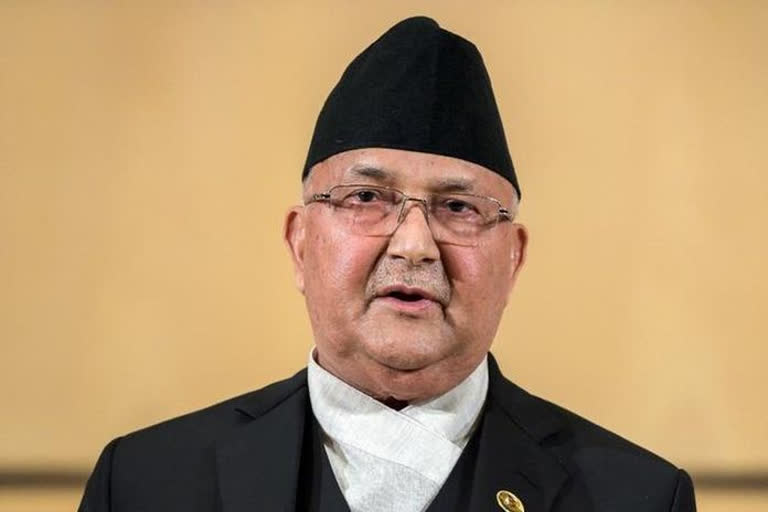New Delhi:Nepal continues to face the gravest political crisis and this time another twist has added to the existing predicament with newly appointed Deputy Prime Minister Rajendra Mahato demanding for establishment of a ‘multi-nation state’ in Nepal. This comes right after Mahato took over on Saturday and said that their party-a faction of the Janata Samajbadi Party (JSP) would continue their effort and movement in establishing Nepal as a multi-nation state.
The demand for a multi-nation-state amid the ongoing political slugfest in the Himalayan nation, drew sharp criticism with protestors demanding the stepping down of Prime Minister KP Sharma Oli.
Leaders across political parties have expressed strong opposition to Mahato’s comment accusing him of playing divisive politics.
Speaking to ETV Bharat, Professor Harsh V Pant, Director, Research, ORF, opined that Mahato’s comment in some ways reveals the desire of the Madhesi leadership to use this moment in Nepalese politics to push their demands.
“They feel that this is an opportune moment given that Nepali politics is passing through a period of change and flux. I don’t think, Mahato means that there should be any greater division of Nepal but rather he is emphasizing that this is the moment when the Madhesi community can push further recognition of its rights and challenges that it faces, which has been disregarded so far by the mainstream political parties”.
Mahato who is one of the pioneers of the Madhesi movement which has been demanding greater rights for the people of the plains had said that they remain committed to building an alternative power and will safeguard the identity and the rights of the Madhesi people. He emphasized that they will prepare for a nationwide movement to set up a muti-nation state in Nepal.
Further, Former ambassador Jitendra Tripathi said that there will be no takers of Mahato’s point of view to further divide Nepal. “India should also not give any credence to his utterances because if India speaks in favour of Madhesis, we will be inviting trouble for ourselves because it might cause trouble for Bangladeshis in Assam, Muslims, and people of Nagaland etc. India should desist from commenting or even accepting his utterances. India should discourage this”, Tripathi reiterated.
“Nepal is passing through a period of great political disruption. The cohesiveness of Nepalese politics is in disarray and what has happened in the last few months, underscored the fragility of Nepalese political institutions. Democratic consolidation should have been the priority for politicians but instead, we have seen how individual leaders own appetite for power aggrandizement has led Nepal to a very dangerous situation. And the more time it takes to resolve the problems or to bring political cohesion to Nepal, the more Nepal will find it difficult to address the socio-economic challenges and the governance challenges that it faces for the benefit of the ordinary Nepalese, Pant further pointed out.
Read: Nepal under pressure to speak up against Chinese encroachments
Meanwhile, Nepal’s Prime Minister KP Sharma Oli seem to be striking the right note as he joined hands with the key Madhesi Janata Samajwadi Party and has expanded his cabinet with the inclusion of eight ministers and two ministers of state from the Madhes-based JSP. Oli on Saturday, appointed two from the Madhesi community, during the cabinet reshuffle. Rajendra Mahato, a senior leader of the JSP has been appointed as the Deputy PM, while Raghuvir Mahaseth and Bishnu Podiyal from UML, has been appointed as another Deputy Prime Ministers with different portfolios.
